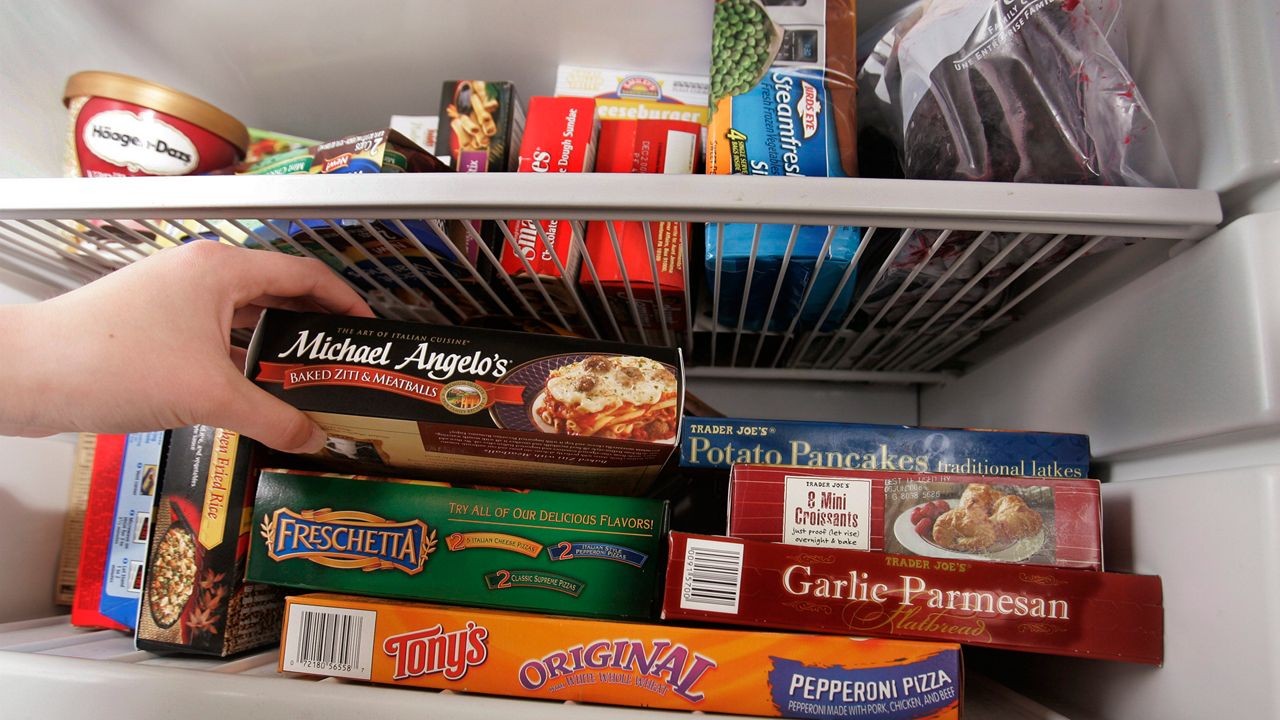OHIO — While the holidays come with a lot of good food, they also come with tons of leftovers.
It could be a challenge to try to eat it all before it goes bad, so many may think to put it in the freezer.
It’s an efficient way to extend the shelf life of food, but also, as a recent study found, putting food in the freezer can help put a dent in decreasing food waste in U.S. households.
Ohio State researchers used data from frozen food-related questions added to the summer 2022 wave of the U.S. National Household Food Waste Tracking Survey. In that survey, 1,067 households participated.
Those households were asked to estimate how much food they’ve thrown out in the previous seven days that had been frozen, and to clarify whether it was bought frozen or food that was later placed in the freezer. Respondents also were asked to state how often and how much frozen food they buy on average.
The study revealed that food waste remains high, however, about 6% of wasted household food in the U.S. were discarded frozen items — making it a small contribution to food waste overall.
“We found that households with home freezing behaviors are more likely to have less food waste than other households,” said Lei Xu, first author of the paper and a postdoctoral scholar specializing in agricultural and food economics at The Ohio State University.
Researchers say the findings suggest if consumers were to stock their freezers, it could help prevent premature disposal of food.
“Food waste is not just an economic loss – it also causes environmental damage because more than 90% of wasted food goes to the landfill, and this can produce greenhouse gas emissions,” Xu said. “The findings suggest that in the future, if we can encourage households to have home freezing behaviors, this small change in food storage habits can have a large environmental impact.”
Additionally, the team found that 30% more of wasted frozen food came from the refrigerator and not the freezer.
Brian Roe, professor in the Department of Agricultural, Environmental and Development Economics at Ohio State, said it’s the first study to see how frozen food participates in food waste. While recent estimates have showed around 30% of food is wasted in the U.S., Roe said other research shows food waste is increasing.
“The fact that food waste is still increasing may suggest to policymakers that campaigns could be useful to educate households about balancing purchasing behavior and making the most of the food they buy,” Xu said.
The study also found that 85% of U.S. households buy frozen foods. Among them, 55% of participants reported they bought frozen food to help reduce food waste. Those who bought more frozen food were more likely to shop a lot less, around two to three times per month.
The data pointed to households with people aged 45 years and older and living in households with three or more people as being the most efficient with frozen foods. The researchers said it's possible that a home-freezing routine comes later in life as experience with managing meals increases.
“Thinking about why that happens, it might mean they don’t understand food storage techniques and don’t understand how long they should keep certain foods and where they should put it,” Xu said. “This suggests more explicit food storage instructions on food labels could educate consumers about how to correctly store foods to reduce waste.”
The researchers say if there is more consumer education about how the freezer can help prevent food waste, it can have an impact economically and environmentally, as well as help address the issue of food insecurity, in which 10% of U.S. households experience.
“Half of consumers buy frozen food to reduce waste. What about the other half?” she said. “We want to increase social awareness of how to save food, and explain how people use frozen food and home freezing techniques to save food. And freezing is one of the most accessible techniques because essentially all households have a refrigerator and freezer.”



